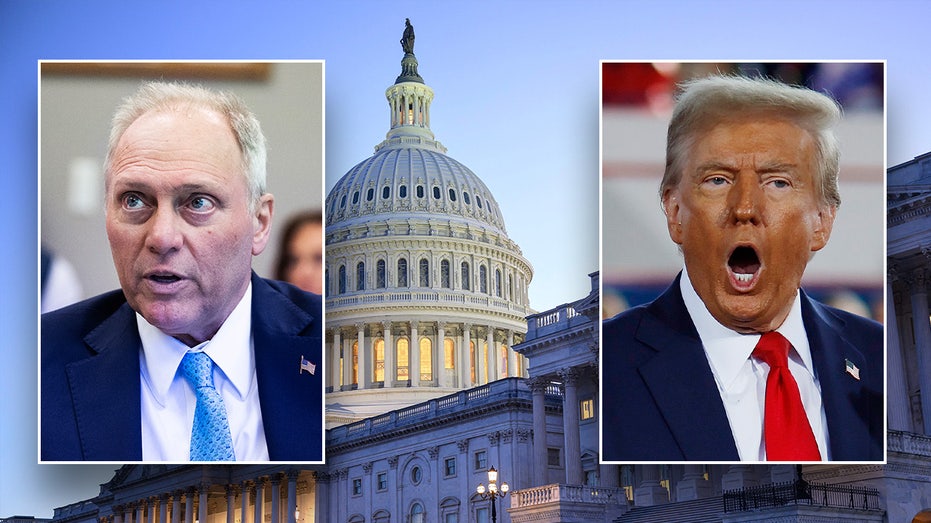
The 118th Congress is likely to have at least one final political standoff before the balance of power shifts, and it’s over how to fund the federal government through September 2025.
EXCLUSIVE: The tumultuous two years of the 118th Congress are likely to be capped by one more standoff over government spending.
House Majority Leader Steve Scalise, R-La., signaled to Fox News Digital that it was unlikely Republicans will move to kick fiscal 2025 federal funding discussions into the new year.
But he reiterated vows that House Republicans would fight against rolling all 12 annual appropriations bills into one large “omnibus” package, setting up a possible showdown with Senate Democrats.
“The ideal scenario would be we get an agreement for the remainder of the fiscal year,” Scalise said.
JOHNSON BLASTS DEM ACCUSATIONS HE VOWED TO END OBAMACARE AS ‘DISHONEST’
He cited constraints on national security if Congress were to simply extend fiscal 2024 funding levels.
“When you think about defense funding, it costs us money to have short-term funding bills when you cannot do long-term procurement, to buy the kind of long-range defense systems that we need to compete with China,” Scalise said. “China is not operating on short-term spending bills, neither should we.”
Before recessing in September, House Republicans and Senate Democrats agreed to extend fiscal 2024 funding levels through what’s known as a continuing resolution (CR) to avoid a partial government shutdown at the end of the fiscal year on Sept. 30.
That bought congressional negotiators through Dec. 20 to hash out a deal.
At the time, several supporters of President-elect Donald Trump demanded that the CR run into the new year in the hopes a new Republican administration would take the reins, something opposed by senior GOP lawmakers and national security hawks.
HOUSE GOP LEADERS RIP ACTBLUE AFTER DEM FUNDRAISING GIANT HIT WITH SUBPOENA
If Republicans win the House in addition to the Senate and White House, Trump will have a say over how a GOP-controlled Congress handles spending in the fall next year. A number of House races remain undecided days after Tuesday’s general election.
Scalise also cited several other priorities, like the border crisis and extending tax cuts, that will take up much of the beginning of Trump’s term.
As for this year’s negotiations, however, both sides are still far apart.
House Republicans have accused Senate Democrats of slow-walking the process without having passed any of their own spending bills on the floor in a bid to force the GOP to swallow an end-of-year “omnibus” with excess spending and little transparency.
Democrats have in turn criticized House Republicans’ spending bills, several of which passed the House floor, as pushing draconian cuts and conservative policies deemed “non-starters.”
SPEAKER JOHNSON RIPS ‘LACK OF LEADERSHIP’ IN BIDEN ADMIN’S HELENE RESPONSE
“We have a lot of conversations to have with our members about the best approach,” Scalise said. “When we had left, we had already passed over 70% of the government funding bills through the House, and the Senate hadn’t passed any.”
“We’re trying to get agreements on the individual bills. That’s why the House did our job … hopefully we can start getting those agreements when we return.”
Fox News Digital reached out to Senate Majority Leader Chuck Schumer, D-N.Y., about whether he anticipates an omnibus, which he has ushered through the Senate nearly every year he’s been majority leader, at the end of this year.
If an agreement is not reached by Dec. 20, the country could face a partial government shutdown just weeks before the new presidential administration.